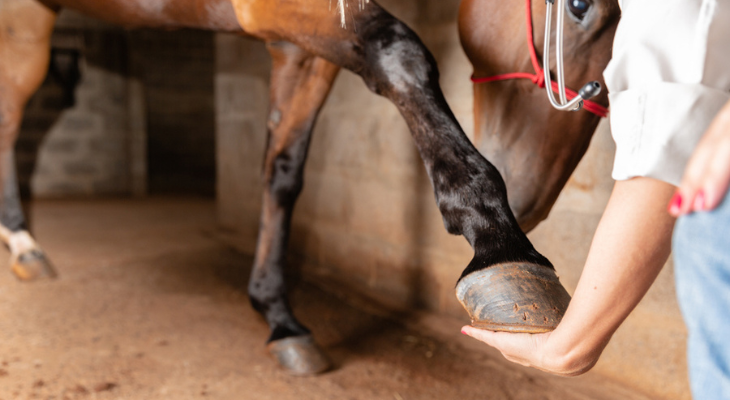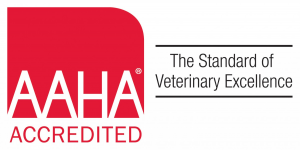Preventing Lameness: Veterinary Intervention for Ringbone
- Created in Equine

Worried That Your Horse May Become Lame Due to Ringbone? One of These Treatments May Help
Thanks to a variety of effective treatment options that ease pain and improve mobility, lameness isn't the only possible outcome if your horse has ringbone. As with so many conditions, it's much easier to treat ringbone when your horse first shows signs of the condition.
What Is Ringbone?
Ringbone is a type of arthritis that affects the coffin or pastern bones in the hoof. The coffin (pedal) bone is at the bottom of the hoof, with the short and long pastern bones above it. Ringbone occurs when extra bone grows around one of these bones due to inflammation or injury. The extra bone may form a complete circle, or "ring," around the hoof in an attempt to protect the joint.
In addition to injuries, ringbone can be caused by years of wear and tear, bone cysts, or improper development of the bones in the hoof. Low ringbone affects the coffin/short pastern bone joint, while high ringbone causes problems in the joint between the short and long pastern bone. As a result of ringbone, the cartilage that cushions the ends of the bones can become damaged or the ligaments that support the joints may become unstable. Symptoms of ringbone include pain and lameness that may come and go at first, swelling, tenderness, and a gait change.
Treatments for Ringbone
If your horse is diagnosed with ringbone, your equine veterinarian may recommend one or more of these treatments:
- Anti-Inflammatory Medications. It's not easy to see your horse in pain. Luckily, anti-inflammatory creams and oral medications offer an effective pain relief solution. In addition to decreasing pain that makes walking, trotting, and galloping uncomfortable, these drugs reduce inflammation and swelling in the joints.
- Supplements. Glucosamine and chondroitin sulfate, the same supplements recommended for people who have arthritis, may also be helpful for your horse. These and other neutraceuticals, such as hyaluronic acid, Omega-3, and unsaponifiables, are available in feed supplements. The supplements relieve both pain and inflammation while promoting cartilage growth. According to Equus Magazine, offering these supplements could even reduce your horse's risk of developing ringbone if it doesn't already have it.
- Bone-Building Medications. Tildren and Osphos, medications that slow or stop bones deterioration, could be helpful for your horse's joints.
- Injections. Injecting corticosteroids or hyaluronic acid directly into your horse's joints not only eases pain and inflammation, but offers protective benefits for the joints. Your equine veterinarian may also recommend injecting polysulfated glycosaminoglycan (PSGAG) to protect the joints and cartilage and increase the amount of fluid surrounding the joint.
- Biologics. The ideal treatment for your horse could come from its own blood. Platelet-rich plasma (PRP) therapy involves drawing a small amount of blood from your horse, then spinning it in a centrifuge to separate the platelets from the plasma. Once the blood is separated, the platelets are injected into the arthritic joint. Platelets spur healing and are used to treat joint injuries and conditions in both horses and humans. Interleukin-1 reception antagonist protein (IRAP), another type of biologic treatment, could also help repair your horse's joint.
- Fusion. If other treatments haven't relieved your horse's pain, fusion may be the best option. During this surgical procedure, the two bones in a joint are permanently connected with plates and screws. As the joint heals, the two bones become one. When the joints no longer rub together, pain disappears. After fusion, your horse may even be able to return to long trail rides or other vigorous activities.
Thanks to the innovative treatments available today, there's no need for a horse to suffer due to ringbone. If you think your horse may have this painful condition, get in touch with us to schedule an appointment with our equine veterinarian.
Sources:
Equus: How to Cope with Ringbone, 9/30/2021
The Horse: Equine Ringbone: Process, Progress, and Prognosis, 12/15/2019


